INDIA IS FUTURE OF TECH & SCIENCE PROWESS
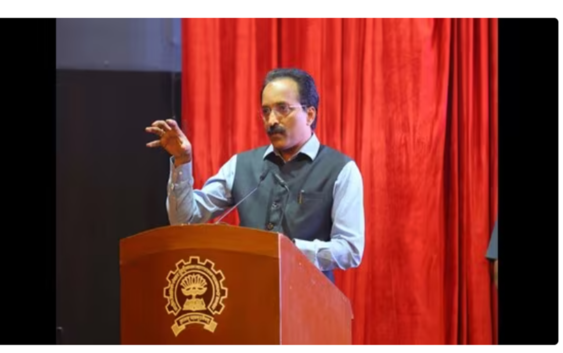
IIT Bombay hosted the 27th edition of Asia’s largest science and technology festival, Techfest 2023-2024, from December 27-29, 2023. The event explored a limitless spectrum of imagination and inventiveness in a Techno-Mystical extravaganza, ranging from ancient mysticism to cutting-edge advancements.

The event featured an extensive lineup of global expert speakers, interactive workshops, summits, panel discussions, and networking opportunities to foster knowledge-sharing and strategic partnerships. The delegates were inspired by the impressive lineup of speakers, featuring esteemed AI, Cybersecurity, WEB3, Gaming, Blockchain industry experts, technologists, visionaries, CEOs, founders, investors, futurists, developers, and thought leaders.
Techfest 2023-24 also hosted multiple competitions including Cosmoclench, Meshmerize, Techfest Olympiad, Codecode, and more.
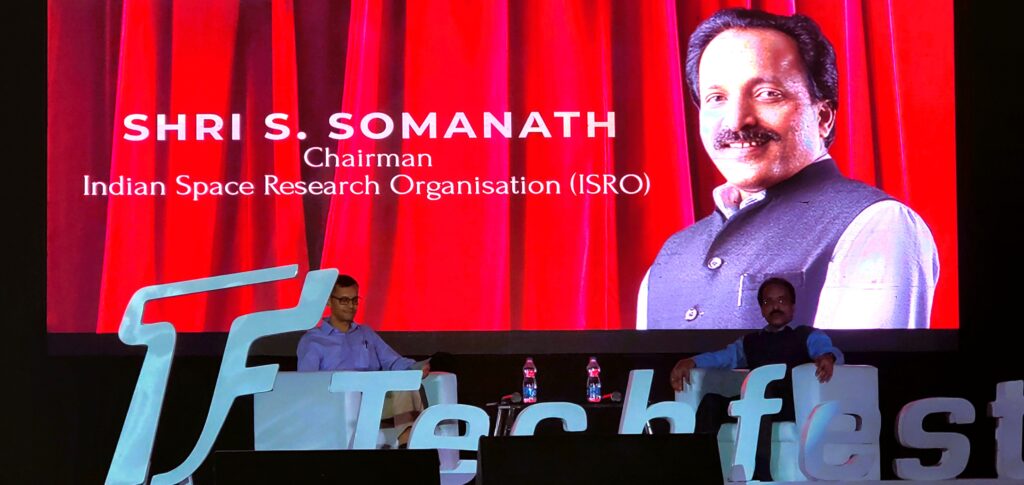
ISRO Chairman S Somanath stated that with the success of Chandrayan-3, there was a high level of interest in what the space agency planned to do in the next 25 years. He stated that the space agency has a roadmap for its plans till 2047. “We can build a space station, we can send human beings to the moon, and we can create moon-based economic activity in space.” Somanath on ISRO’s plans till 2047.
On August 23, India made history as the fourth country to land on the Moon and the first in the southern polar area. Months after the success of Chandryaan-3, Somanath announced earlier this month that the space agency plans to send an Indian astronaut to the Moon as early as 2040.
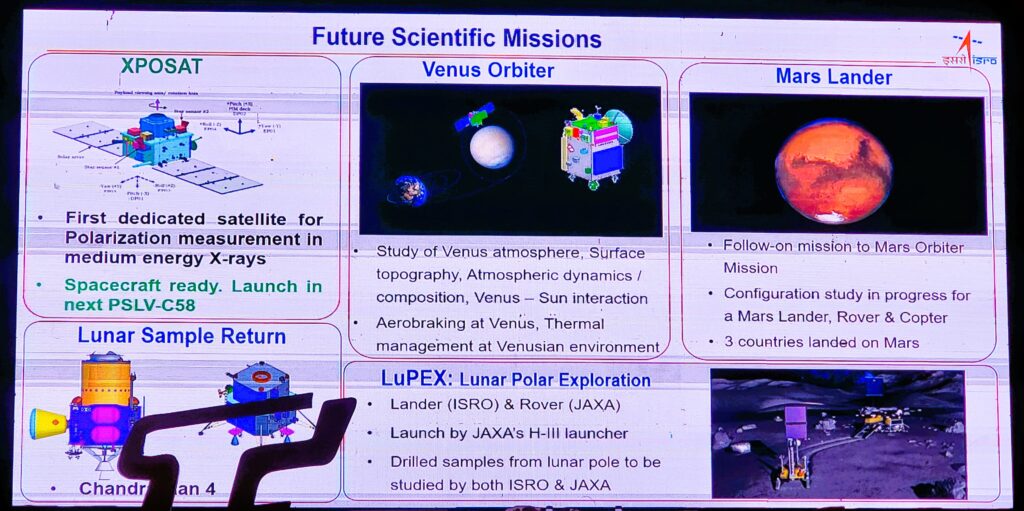
The ISRO working on the Gaganyaan project, which would launch three humans into orbit at 400 km and safely return them to Earth by landing in Indian sea waters, and the mission is slated to launch in 2025, and emphasised the need for scientific cooperation in fields like material science and robotics.
“We will look for possible research opportunities with various institutions in India, in areas like material science, robotics, among all,” he stated.
Somanath emphasized the necessity for infrastructure growth, mentioning the need for a new launch pad as rockets grow in size. “With bigger rockets, we will require bigger launch pads. The current Shriharikota will not be enough,” he explained.
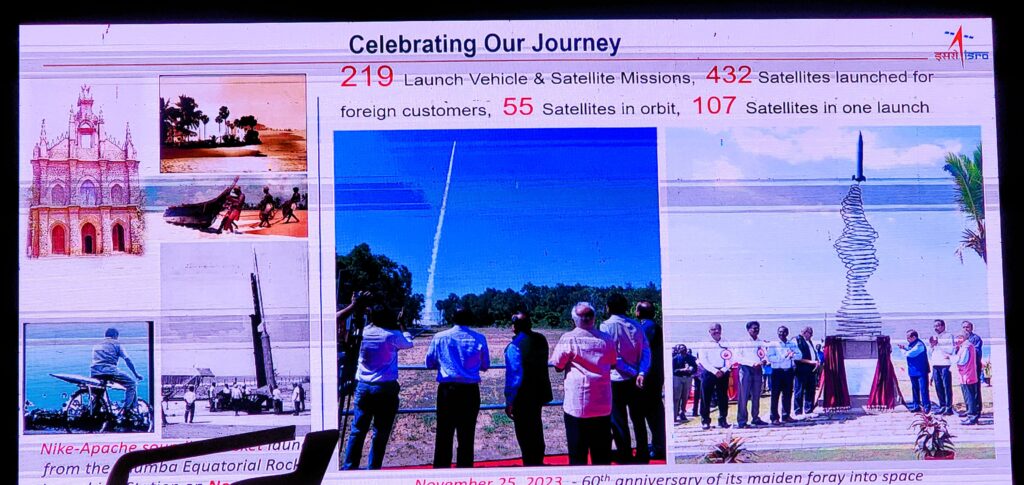
“Looking ahead, ISRO aims to take the next step in space exploration with the Gaganyaan programme, planning to launch a crew of 2 to 3 Indian astronauts into Low Earth Orbit (LEO) for up to three days before safely returning them to a predefined site in Indian waters.”
Somnath, while discussing the Chandrayan-3 mission’s success, announced intentions to launch 50 satellites over the next five years, with an emphasis on geo-intelligence, agricultural, and environmental and climatic observation.
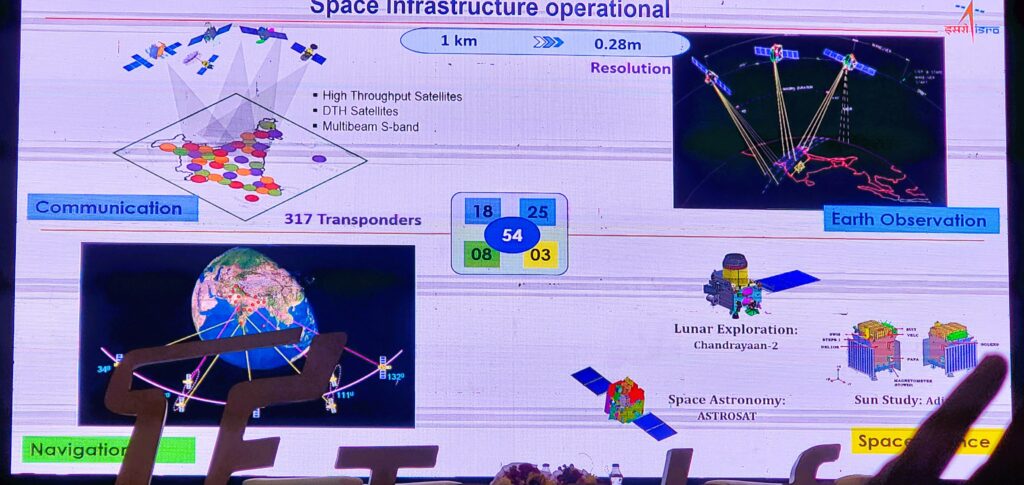
Somanath announced earlier this month that the space agency has opted to construct the environmental control and life support system (ECLSS) for the human space flight project in-house after being unable to obtain it from other nations.
“We have no experience in developing an environmental control life support system. We were only designing rockets and satellites. We thought that this knowledge would come from other nations, but unfortunately, after so much discussion, nobody is willing to give it to us,” Somanath said, adding that ISRO has now decided to indigenously develop the ECLSS. “We are going to develop it in India using the knowledge we have and using the industries that we have.”
Somanath expounded on ISRO’s lofty plans, which include launching the ‘Bharat Antriksh Station’ (Indian Space Station) by 2035, with the first phase scheduled for 2028.
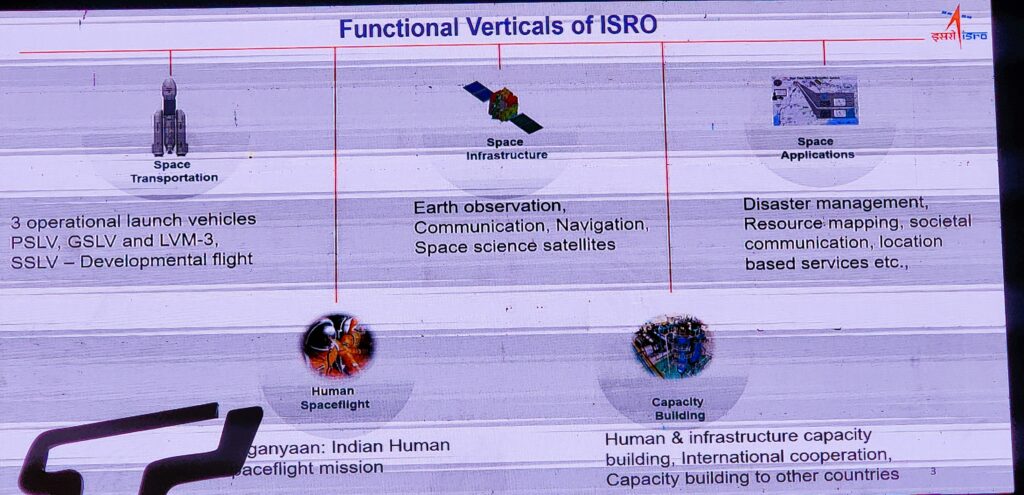
S Somanath, chairman of the Indian Space Research Organisation (ISRO), addressed a crowd of students on the second day of the annual science and technology festival, Techfest, hosted by the Indian Institute of Technology (IIT) Bombay on Thursday, urging IITians to actively contribute to India’s space programmes. During a question-and-answer session, Somanath addressed concerns regarding students’ preference for attractive overseas career opportunities. He urged individuals to consider working for ISRO, emphasising the value of contributing to the country’s space efforts.
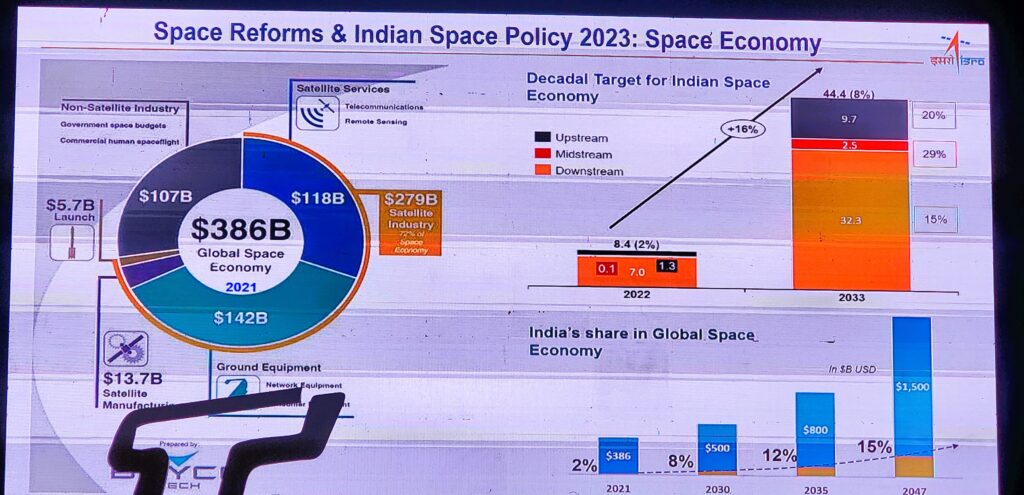
Somanath encouragingly said, “I will be happy to see more IITians joining the space program and participating in building the nation’s space projects.” He underlined the potential for research cooperation with IITs, highlighting their knowledge as a vital tool in strengthening numerous Indian space endeavours. The ISRO chairman also announced the organization’s ambitions till 2047. Somanath especially requested that IIT Bombay provide their knowledge in robotic activities for in-orbit services.
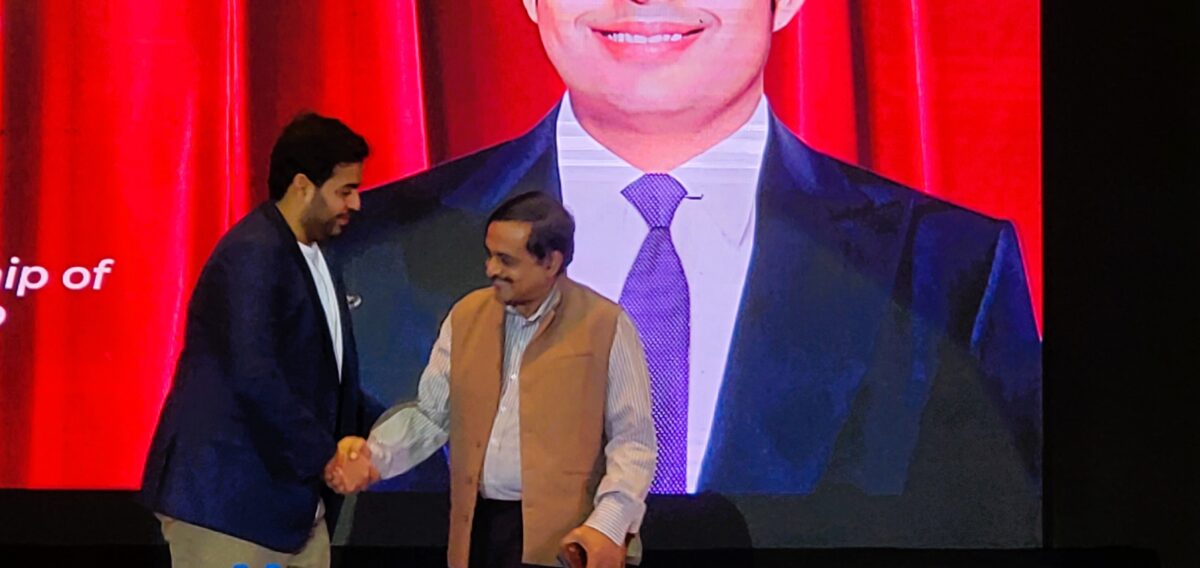
Reliance Jio Infocomm, India’s largest telecom service provider, is collaborating with the Indian Institute of Technology Bombay to launch ‘Bharat GPT’, a large language model tailored specifically for India’s needs, according to chairman Akash Ambani. Jio is also “comprehensively thinking” about launching an operating system for smart televisions.
Ambani also expressed his vision for the next decade, emphasising the importance of digital technology in shaping India’s future trajectory. Recognising the long-standing relationship with IIT-Bombay, he expressed interest for potential future efforts, particularly the BharatGPT program’s introduction. He emphasised the need of empowering young minds, creating an atmosphere that promotes the entrepreneurial spirit, and cultivating an entrepreneurial mindset.
Ambani expressed his optimism about the future partnership between Reliance and IIT-Bombay, envisioning a shared journey aimed at continually pushing the boundaries of innovation. Ambani’s lecture at the IIT-Bombay Techfest focused on technology, innovation, and future developments.
“At present, we have just scratched the surface with large language models and generative AI and the next decade will be defined by these applications,” Ambani said. “We have been working on a project with IIT Bombay to launch a Bharat GPT programme,” he said,
Reliance Jio is collaborating with Prof Ganesh Ramakrishnan of the Department of Computer Science and Engineering at IIT Bombay on generative pretrained transformers and big language model-based solutions for important business verticals like as telecom and retail.
Ambani stressed the importance of technology as a great equalizer in society, across boundaries and demography. He emphasized Reliance’s focus on user innovation, including the launch of JioBharat, a sub-₹1,000 4G smartphone targeted at bridging India’s digital divide.
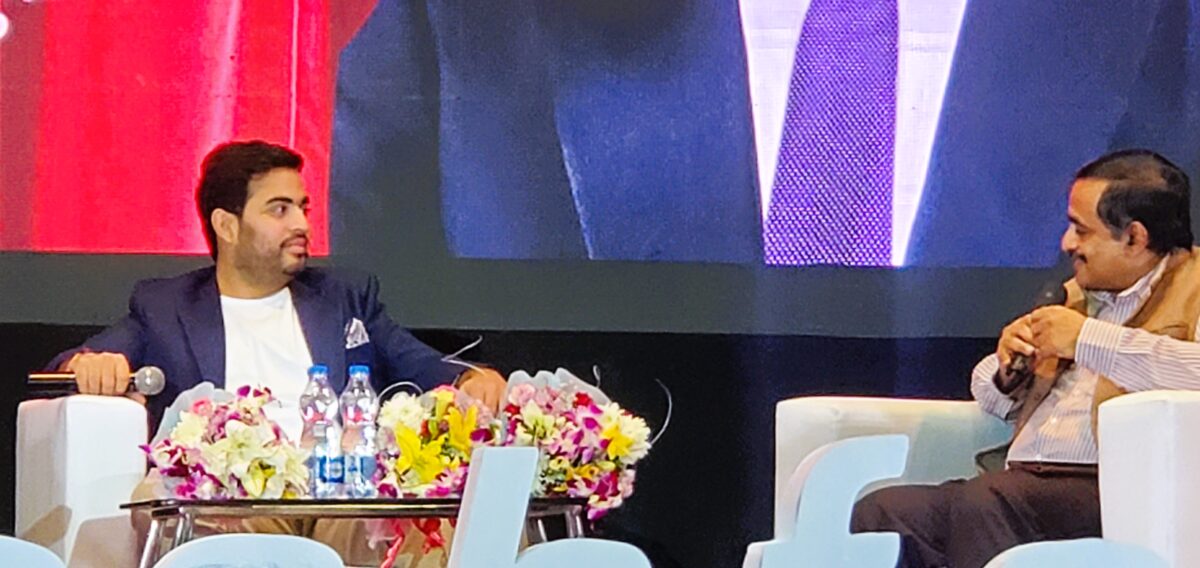
In response to a question on how to sustain an innovative culture in the rapidly expanding era of AI, Ambani emphasised the need of focusing on formative technologies while keeping the client in mind. He described Reliance’s attempts to work on cutting-edge technologies like brain computing and quantum computing while also tackling ground-level challenges that affect all Indians.
He emphasised technology’s transformational role in fostering equality, namely its potential to overcome barriers between nations and varied people. When asked how to stimulate innovation in the face of fast advances in artificial intelligence, Ambani emphasised the significance of prioritising fundamental technologies with a customer-centric strategy.
Ambani also discussed his vision for the coming decade, highlighting the importance of digital technology in moulding India’s future. He discussed Reliance’s commitment to make technology more user-friendly and allowing 5G Private Networks for businesses of all sizes.
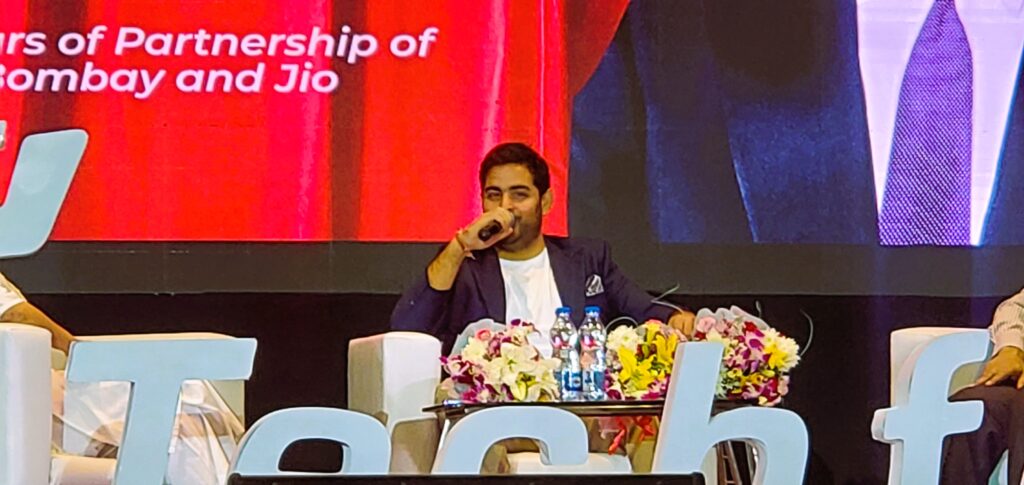
Ambani praised Jio as the “largest startup in the world,” and urged young entrepreneurs to take a brave approach to failure. He emphasised the significance of working for societal good, particularly in the consumer area, and encouraged everyone to be truly committed to their profession.
Ambani emphasised the necessity of creating a “ecosystem of development” for the firm, ushering in the goal for ‘Jio 2.0.’ This imaginative strategy demonstrates Jio’s dedication to disruptive projects that might transcend media, commerce, communication, and gadgets.
Akash Ambani, speaking to IIT-Bombay students, emphasised qualities critical to success: prioritising social impact, following personal interests, learning from failure, and maintaining honesty. His short counsel embodied the core of entrepreneurial spirit and ethical behaviour, which struck a chord with the audience’s eager minds.
Akash Ambani to IIT-Bombay students: “Work for the greater good, pursue your passion, embrace failure, and be honest”
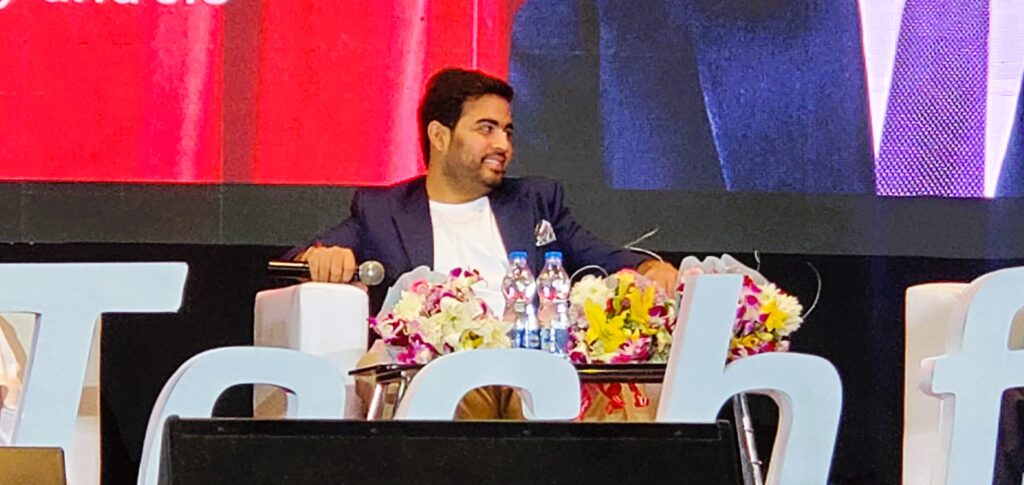
Reliance Jio Chairman Akash Ambani while addressing at the Techfest hosted at the Indian Institute of Technology-Bombay (IIT-B), he discussed his personal connection to IIT Bombay, saying that being present there had been a long-held ambition of his, and shared his priceless advise for aspiring entrepreneurs. Akash Ambani during chat with Shradha Sharma, she asked “How does it feel to be in IIT Mumbai?” Akash Ambani subsequently expressed his excitement about attending the premier engineering institution. He related tales about his father, Mukesh Ambani’s response after receiving an invitation to speak at IIT-B. Akash Ambani said, “Being at IIT Bombay is part of my bucket list. My father always wanted me to be an engineer. To be invited to an engineering college of such stature is an honour. In fact, my father was not believing that I was going to come here and speak, so he sent my wife Shloka, who is kind enough to be a witness.”
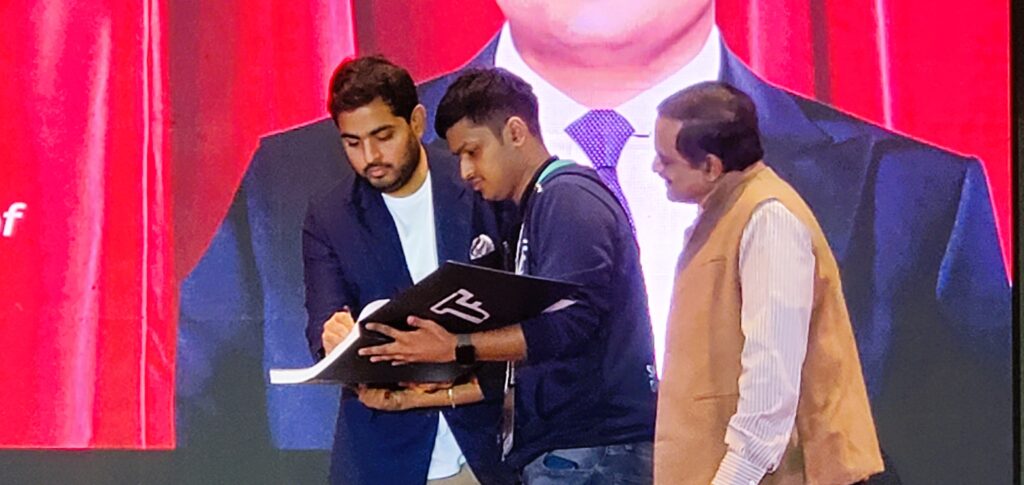
Ambani expressed his delight for being present at the prestigious technical college while discussing a variety of topics. Ambani emphasised the capacity of technology to promote equality by overcoming divides between nations and various populations. When asked how to foster creativity in the face of fast AI developments, he emphasised the need of prioritising core technologies and taking a customer-centric approach. Ambani underlined Reliance’s commitment to pioneering areas such as brain computing and quantum computing, as well as addressing real-world concerns that will benefit every Indian citizen.
During a quick-fire session, Ambani gave advise to aspiring entrepreneurs, emphasizing the need of working for social good, pursuing one’s passion, embracing failure, and maintaining honesty in all endeavours.
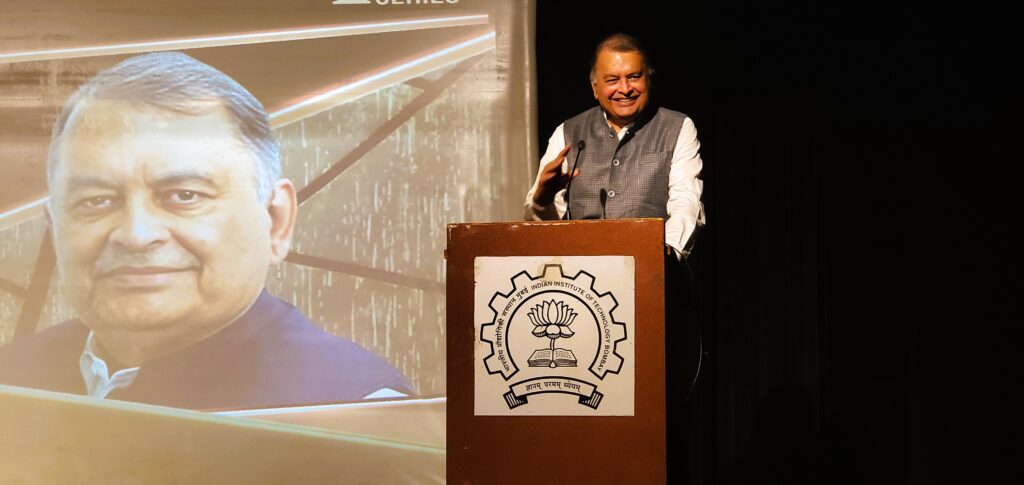
Chief Guest, Mr. Harish Mehta, Co-founder & first elected Chairman of NASSCOM, Founder of Onward Group & author of The Maverick Effect, along with Prof. Subhasis Chaudhuri, Director, IITB inaugurated TechConnect 2023.
Mr. Harish presented on his book, The Maverick Effect, which tells the incredible story of a group of dreamers who came together to revolutionize a nation while simultaneously transforming the world’s perception of India. Today, the Indian market is valued at more than $200 billion. When NASSCOM was created, software exports were roughly $50 million, making it challenging to sustain and manage the firm.
The book outlines how NASSCOM overcame corporate barriers and gained government support by demonstrating the positive impact of software exports on the Indian economy.
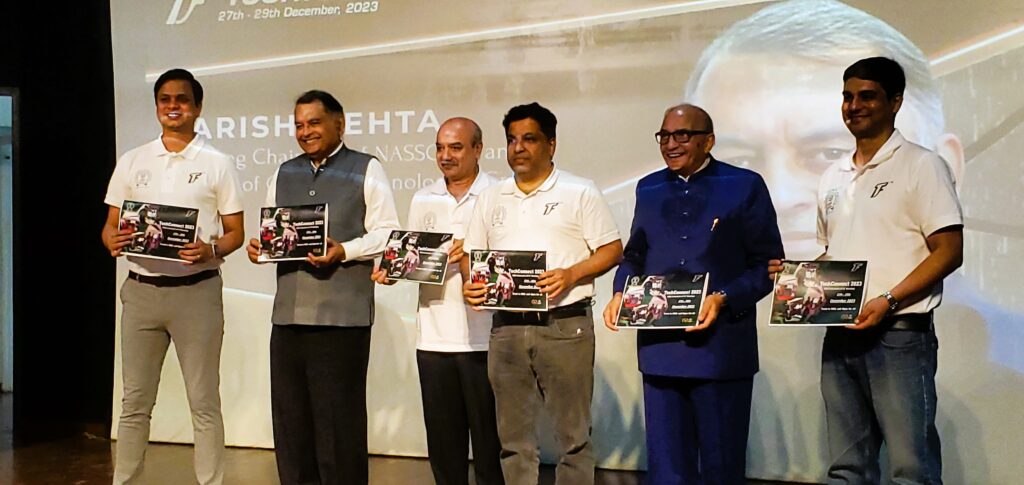
The IT industry directly employs over four million people. It is the greatest forex earner and has enabled millions of Indians escape poverty and enter the middle class. Harish Mehta’s journey is honest, transparent, and inspirational, demonstrating that no ambition is unachievable when unwavering, like-minded souls come together.
When NASSCOM was founded, its goal was to foster government-industry cooperation that would feed sensible economic policy and provide Indian IT with access to global markets. Perhaps what made it undesirable to strong lobbyists was that these efforts were never limited to favoured members, but instead focused on the advantages of the whole sector. Some officials applauded the new approach of a fair playing field and a ‘India first’ attitude. Even the naysayers quickly saw that as the pie grew in size, so would each slice.
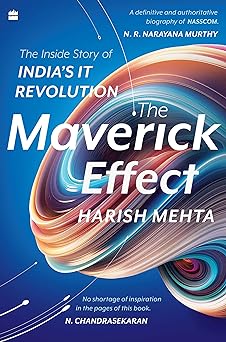
Mehta’s amazing tale and perceptive leadership provide vital lessons not just for entrepreneurs and business leaders, but also for anybody looking to make a good difference in the world.
Some lessons and important guidance for today’s youth and entrepreneurs –
- Dare to dream big and challenge the status quo.
- Foster a spirit of cooperation, even amongst competitors, to achieve common goals.
- Persevere through obstacles and setbacks.
- Fuel your work with passion and a larger purpose beyond personal gain.
- Trust your team and empower them to take ownership.
- Embrace different perspectives and backgrounds.
- Be flexible and adapt to changing circumstances.
- Inspire and guide others with your knowledge and experience.
- Invest in developing the necessary skills and talent for the industry’s success.
- Create a strong reputation for your industry on the global stage.
- Challenge stereotypes and re-write the narrative surrounding your country or industry.

